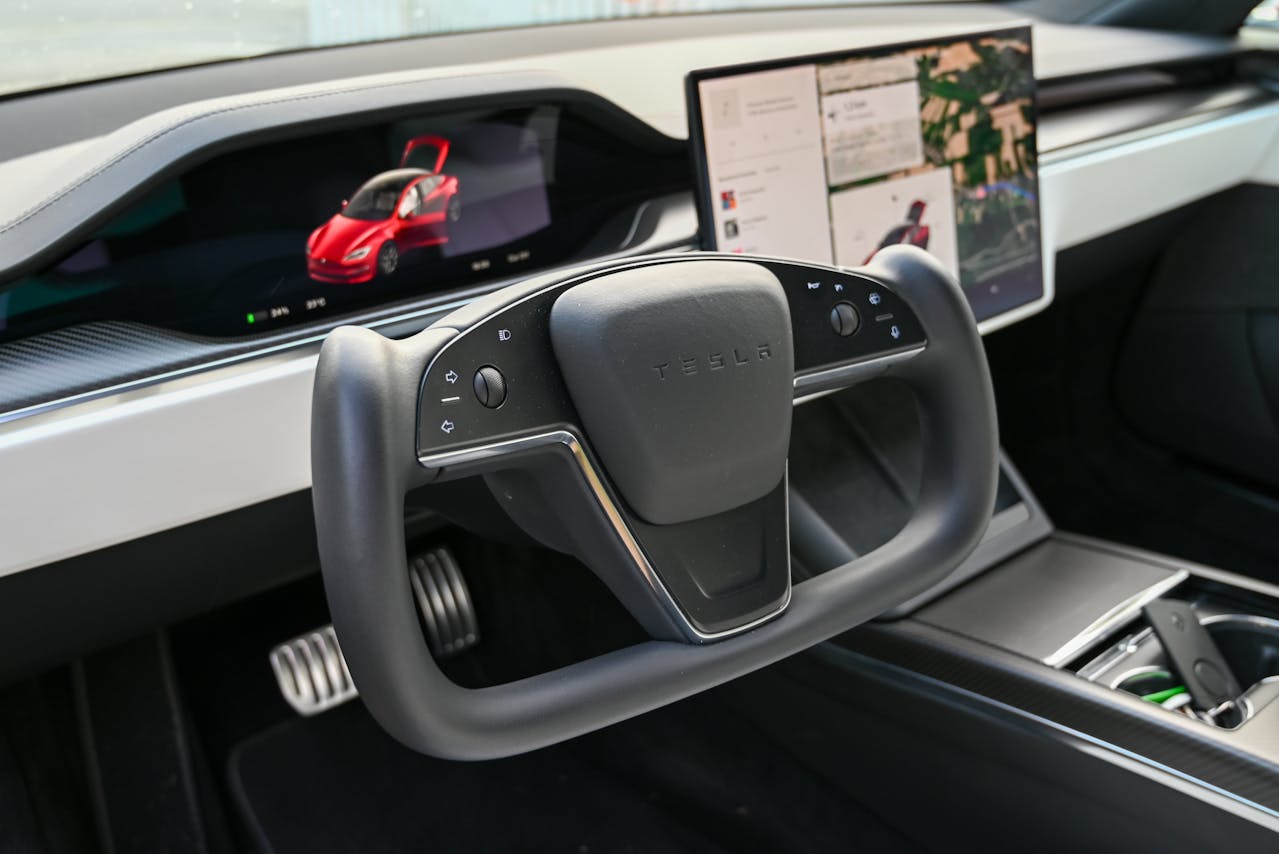The Most Investable EV Company in 2025?
Tesla’s 2025: A Make-or-Break Year?
If you asked Wall Street in 2020 which company was destined to dominate electric vehicles for the next decade, the answer was almost universally Tesla. Fast forward to mid-2025, and the landscape looks very different. Chinese EV giants like BYD, Li Auto, and Xpeng have expanded globally with ferocious speed. Legacy automakers like Ford, GM, and Volkswagen have ramped up EV production. Meanwhile, Tesla’s once-unquestioned dominance is facing its toughest challenge yet.
So, is Tesla still the top EV company to invest in this year? Or is its golden era fading?
Financials: Profitable but Pressured
Tesla is still one of the few consistently profitable EV makers, reporting $3.7 billion in net income in Q2 2025. However, that’s down 12% year-over-year, largely due to aggressive price cuts meant to fend off cheaper competition from China and new entrants like VinFast and Zeekr in Europe.
Gross margins have shrunk to 17.1%, a steep fall from the 25%+ levels seen just two years ago. CEO Elon Musk acknowledged this “margin sacrifice” as necessary to maintain market share, especially in the U.S. and Europe where price sensitivity is growing.
Still, Tesla’s free cash flow remains solid at $2.4 billion, and the company has over $23 billion in cash reserves—plenty of room to invest in AI, manufacturing, and energy storage.
FSD, AI & Autonomy: Tesla’s Wild Card
Perhaps Tesla’s biggest long-term value driver is Full Self-Driving (FSD). In 2025, FSD Beta 12.4 was released with massive improvements. For the first time, Tesla vehicles are performing complex urban maneuvers in San Francisco and Los Angeles without driver intervention 80% of the time, according to real-world user data aggregated by Teslascope.
Tesla also began limited Robotaxi testing in Austin and Phoenix, partnering with Uber to pilot autonomous ride-hailing fleets. Regulatory hurdles still exist—particularly with the NHTSA and California DMV, but Musk has hinted at a large-scale launch by Q4 2025.
If Tesla nails autonomy first, its $500 billion market cap could look cheap in hindsight. But if it fails or delays again, investor patience may finally crack.
Production & Model Lineup
Tesla’s vehicle lineup hasn’t changed much in 2025. The Model 3 Highland refresh, Cybertruck, and Model Y still account for over 85% of global deliveries. The promised $25,000 compact EV has been delayed again, now expected in late 2026.
That said, Tesla has continued scaling Giga Mexico and Giga Berlin, with both factories hitting record efficiencies—under 30 labor hours per vehicle, a metric traditional automakers still struggle to match.
Still, competition is fierce: BYD’s Seagull sells for just $11,000 in China and has now launched in Europe. GM’s Equinox EV undercuts the Model Y by $7,000. Tesla may need more than just cost-efficiency to keep up.
Global Policy & Subsidies
U.S. tax credits under the Inflation Reduction Act (IRA) continue to support Tesla buyers, but Chinese brands are pushing hard into Europe and Southeast Asia with state-backed incentives and aggressive financing.
In Germany, for instance, Tesla’s market share in the EV segment dropped from 21% in 2023 to just 13% in 2025, with BYD, Hyundai, and Renault all gaining ground.
Investor Sentiment: Divided
On one hand, Cathie Wood’s ARK Invest still sees Tesla hitting a $2,000 price target by 2030, banking on FSD, energy, and humanoid robotics. On the other hand, firms like Bernstein and Morgan Stanley have cut price targets, citing margin compression and lack of new products.
Retail investors remain loyal—Tesla is still the most-held stock on Robinhood—but institutional ownership has declined from 58% to 49% over the past year.
Verdict: Invest, Trade, or Wait?
Tesla remains a high-risk, high-reward play. If you believe FSD is the future and Tesla will lead autonomy and energy, it’s hard to ignore the potential upside. But if you’re looking for stable cash flow, lower volatility, and less reliance on Elon Musk’s next bold promise, Tesla might no longer be the “safest” EV bet.
In 2025, Tesla is not just an EV company—it’s an autonomy, AI, and manufacturing moonshot. Whether that excites or worries you depends entirely on your risk profile.



